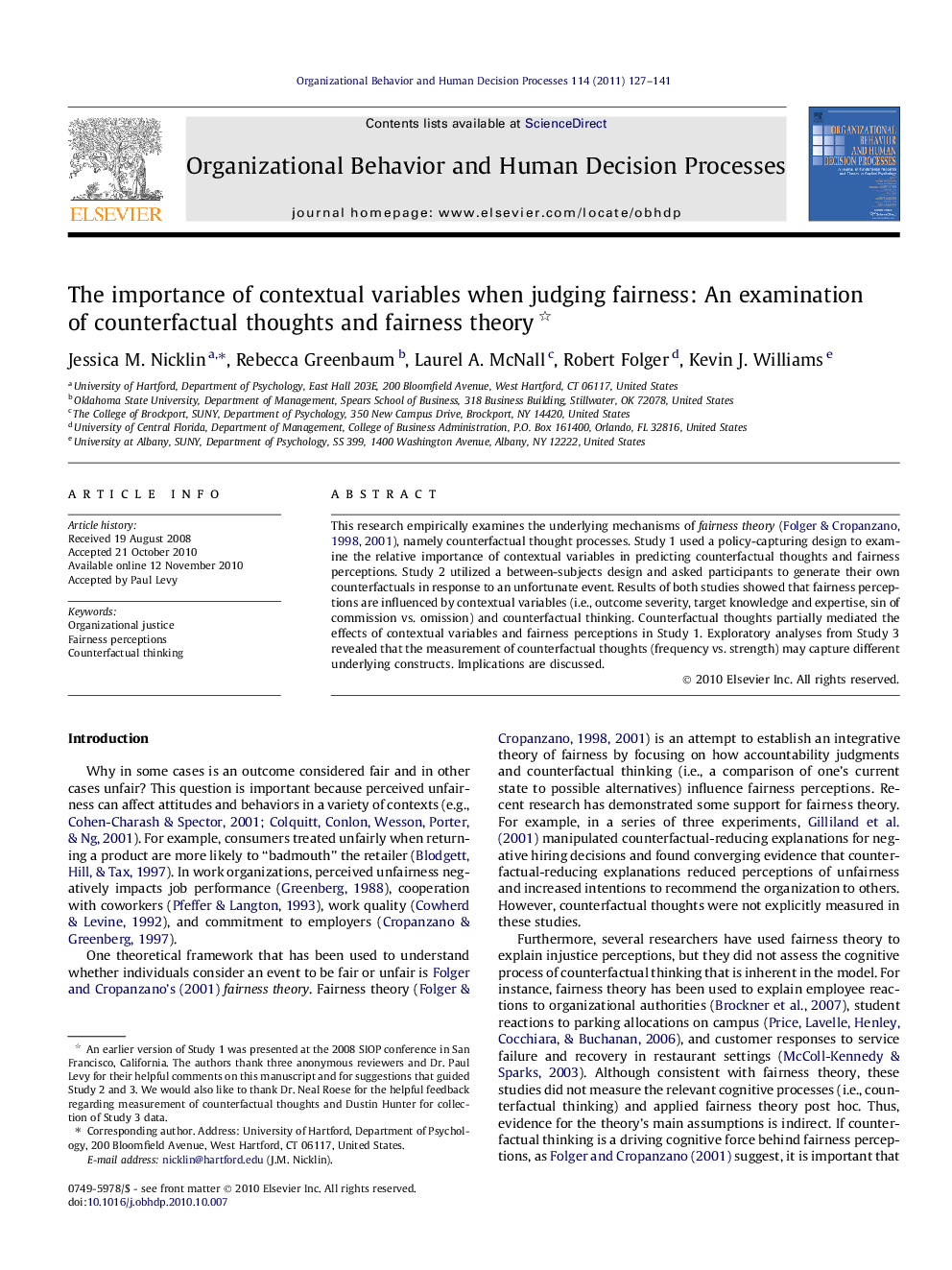| Article ID | Journal | Published Year | Pages | File Type |
|---|---|---|---|---|
| 888753 | Organizational Behavior and Human Decision Processes | 2011 | 15 Pages |
This research empirically examines the underlying mechanisms of fairness theory ( Folger and Cropanzano, 1998 and Folger and Cropanzano, 2001), namely counterfactual thought processes. Study 1 used a policy-capturing design to examine the relative importance of contextual variables in predicting counterfactual thoughts and fairness perceptions. Study 2 utilized a between-subjects design and asked participants to generate their own counterfactuals in response to an unfortunate event. Results of both studies showed that fairness perceptions are influenced by contextual variables (i.e., outcome severity, target knowledge and expertise, sin of commission vs. omission) and counterfactual thinking. Counterfactual thoughts partially mediated the effects of contextual variables and fairness perceptions in Study 1. Exploratory analyses from Study 3 revealed that the measurement of counterfactual thoughts (frequency vs. strength) may capture different underlying constructs. Implications are discussed.
